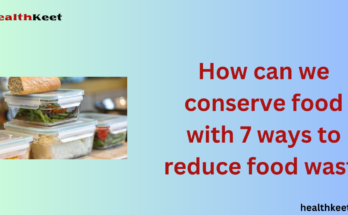The humble potato is typically the first carb to be eliminated from the grocery list while on a weight loss programme, making the popularity of the potato diet all the more astounding. This extreme eating pattern calls for sticking to boiled potatoes for a predetermined amount of time in order to lose weight quickly.
While many claim to have dropped large amounts of weight while on the potato diet, no scientific research has been done to back up these claims. The potato diet can last anywhere from three difficult days to several arduous months. This adaptable root vegetable has a variety of health advantages outside of deep-fat frying, but is the potato diet safe?
We investigate the nutritional composition of the potato, explain how the potato diet works, and discuss our health concerns with Pixie Turner, a licenced nutritionist, for Discover Great Veg:
The potato diet is what?
Essentially, the potato diet entails a period of time during which only potatoes are consumed. The most popular method is a crash diet, which was made popular by Tim Steele, author of The Potato Hack: Weight Loss Simplified. The only exception to this rule is salt, which is permitted but not encouraged.
The Potato Diet: What Are The Rules?

Eat nothing but potatoes at each meal. Keep your potatoes mashed, roasted, or boiled; avoid oils and fats; and use seasonings sparingly. Clearly prohibited are chips and french fries. You can choose to eat sweet potatoes or not; they are not off-limits. The skin can be consumed. To quench your thirst, sip water. It goes without saying that covering the potatoes in cheese and bacon is not a possibility. You are permitted to consume between 2 and 5 pounds of potatoes each day, so you shouldn’t ever experience intense hunger.
Is the potato diet effective?

Due to its extremely low calorie content, the potato diet will initially aid in weight loss. Even if you ate 10 whole potatoes in a day, you would only eat 1,100 calories, which is much less than the daily calorie limit of 2,000 for women and 2,500 for men. One medium-sized skin-on potato has 110 calories.
Turner asserts that potatoes don’t offer any unique weight-loss benefits. It merely does what any diet seeks to do: restrict food intake in order to restrict overall energy intake. Most likely, someone would rapidly become tired of eating nothing but potatoes and would eat less food overall than usual.
Advantages of a potato-based diet
While the potato diet has several unsettling drawbacks and health risks, there are some potential advantages worth investigating:
Potatoes are a healthy food.

More than a quarter of your recommended daily intake of potassium, vitamin C, vitamin B6, and potassium may be found in one potato (180g), in addition to a sizeable portion of folate, niacin, phosphorus, and manganese. In particular, white potatoes include lutein and zeaxanthin, while purple and red potatoes contain anthocyanins, making them a rich source of antioxidants.
Fibre is abundant in potatoes.

Similar to an apple, a potato has roughly 3.7g of fibre. Fibre is crucial for a healthy digestive system as well as for making you feel fuller for longer periods of time and maintaining stable blood sugar levels. Resistant starch, which resists digestion and nourishes the beneficial bacteria in the gut, is another component of potatoes.
Potatoes are inexpensive.

Compared to other vegetables, potatoes are less perishable, inexpensive, and widely available. They also score at the top of the satiety index, which rates foods according to their capacity to sate hunger, in terms of fullness for the money. To feel as satisfied as you would with one tatty, you would need to consume seven croissants.
The potato diet is simple to implement.

We’ll give the potato diet credit for being simple. Some remark that the rules’ simplicity changes their connection with food; they become more conscious of the times when they eat out of boredom or fatigue and have a better sense of when they are hungry and full. There are, however, more healthier approaches to gaining this awareness. Taking up mindful eating habits or intuitive eating, for instance.
The potato diet’s risks
There is no doubt that potatoes belong on every dinner table, but consuming only potatoes for any length of time might have serious health repercussions.
The potato diet is extremely limiting.
Turner asserts that sticking to a diet of mainly potatoes “flies in the face of everything we know about a healthy pattern of eating.” It’s limited, extremely monotonous, antisocial, and hard to get all the vitamins the body requires from just potatoes, according to the author.
Some nutrients are lacking in the potato diet.
The vitamins and minerals you need for good health, such as vitamin B12, vitamin A, calcium, and zinc, are not all present in potatoes. Additionally, they contain only 4.3g and 0.2g of protein and fat per potato, respectively. Protein is necessary for creating hormones, muscles, and bones, while fats aid in the body’s absorption of specific vitamins.
The potato diet causes muscular wasting.
You may drop weight quickly, but it doesn’t necessarily imply you’re losing fat. When dieting, especially on low-calorie, low-protein diets, muscle loss is rather typical. In a tiny study, lean muscle made for 18% of the weight loss experienced by participants on a 500-calorie diet.
Your metabolism is slowed by the potato diet.
Your metabolism is hampered when you consume less calories than you require. Since muscle tissue has a higher metabolic activity than fat, losing muscle is one way this can happen. A low-calorie diet can reduce your daily calorie burn by up to 23%, and this effect can last for a long time after the diet is over.
Results from the potato diet are difficult to maintain.
Adaptive thermogenesis is the process by which your metabolism slows and your body burns less calories in response to consuming little energy. This makes it challenging to keep off your new weight once you resume your regular eating habits. According to long-term studies, up to 90% of dieters regain their original weight.
The toxic effects of the potato diet
When starchy foods like potatoes are cooked at high heat, a harmful chemical compound called acrylamide occurs. High doses have been linked to cancer in animals and damage to the human brain system. Avoid storing raw potatoes in the refrigerator and soak them if you plan to stick to the potato diet long-term.
So, Is This Diet Safe And Effective?
Effective? Definitely in terms of quick weight loss, but not necessarily healthy. Exercise is not recommended while following a potato-based diet since potatoes lack sufficient amounts of protein and minerals that provide energy. They are deficient in nutrients, fibre, vitamins A, E, and K. Not to mention that eliminating whole food groups could have the opposite effect and leave you dealing with a never-ending list of health issues. The potato diet is not a long-term, healthy eating strategy, to put it simply.
The potato diet is it secure?
The potato diet may aid in weight loss, but it hasn’t been scientifically proven to be safe. However, it’s very limiting, lacking in vital nutrients, and might affect your metabolism. Simply avoid doing that, Turner advises.



















